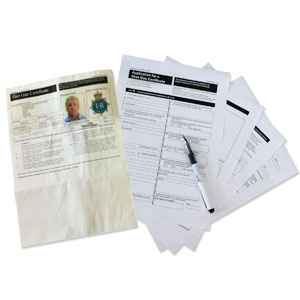 BASC has reiterated its advice that those applying for and renewing shotgun or firearm certificates should, in accordance with the agreement between medical representatives and the government, not pay any fee demanded by their general practitioner for responding to the initial police medical letter.
BASC has reiterated its advice that those applying for and renewing shotgun or firearm certificates should, in accordance with the agreement between medical representatives and the government, not pay any fee demanded by their general practitioner for responding to the initial police medical letter.
When new guidance came into force in April this year, the Home Office stipulated a fee would only become justified if the licensing authority required further medical involvement beyond the initial response.
But a doctor’s trade union, the British Medical Association (BMA), has this week revised its advice to GPs and says this may cause some to withdraw from the licensing process. The BMA has told those opting out that they can do so “due to a lack of funding or for a conscientious objection to gun ownership”.
This contradicts their final stance reached during Medical Evidence Working Group sessions, which were convened by the Home Office to steer through the new guidance. Minutes of the group’s last meeting record Dr John Canning, chair of the BMA’s professional fees committee, as confirming: “….he was content that the expectation would be there would be no fee levied by GPs in response to the initial police letter.”
Paul Dale, BASC’s firearms officer, said: “The government, police, shooting organisations and medical representatives from the BMA, Royal College of General Practitioners and General Medical Council agreed this system in a Home Office working group which produced the guidance on medical involvement in firearms licensing.
“It was a lengthy, involved process which examined in detail every possible objection from all sides. BASC certainly felt all stakeholders were given ample opportunity to table objections to any aspect of the proposed guidance. It is regrettable that the BMA have now performed a U-turn.
“Nevertheless, our advice to members remains the same. Refuse to pay any fee demanded by the GP for responding to the initial patient record request. Should the doctor refuse to participate without money, point out to the GP that the police letter states that if no response is received within 21 days it will be assumed that there are no medical issues.”
Peter Glenser, chairman of BASC and a barrister specialising in firearms law said: “It is not the place of the BMA to alter guidance given out by the Home Office. A lengthy, professional process of engagement took place and all parties signed up to the outcome.
“Now some months after the door of the meeting room was locked shut for the last time and the lights switched off, the BMA wants to scribble its own changes between the paragraphs. This is simply not acceptable.
“This Home Office guidance is not an optional extra; it applies to doctors as much as the police. Applicants for certificates should continue to follow the guidance as given by the Home Office.”
Professor Ann Mortimer, a BASC council member and a consultant psychiatrist, said: “Medical involvement in firearms licensing is important for public safety. It is unacceptable for doctors to hold the system to ransom in their own financial interests.”